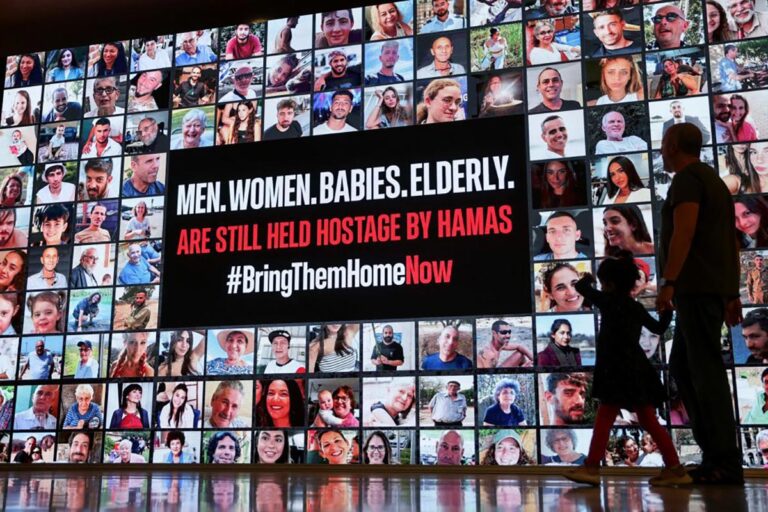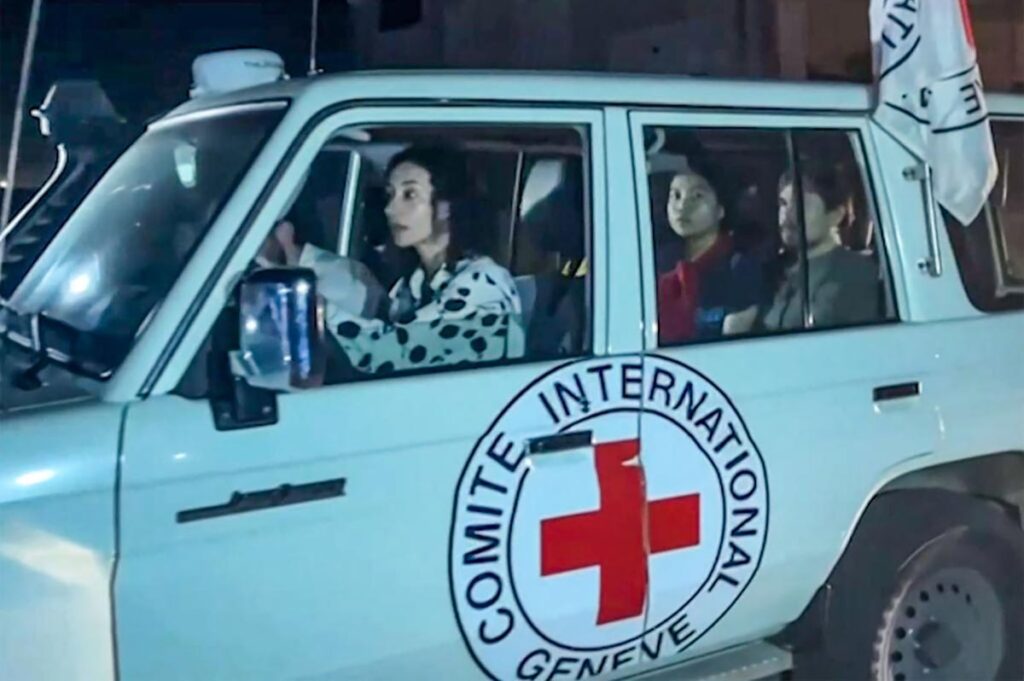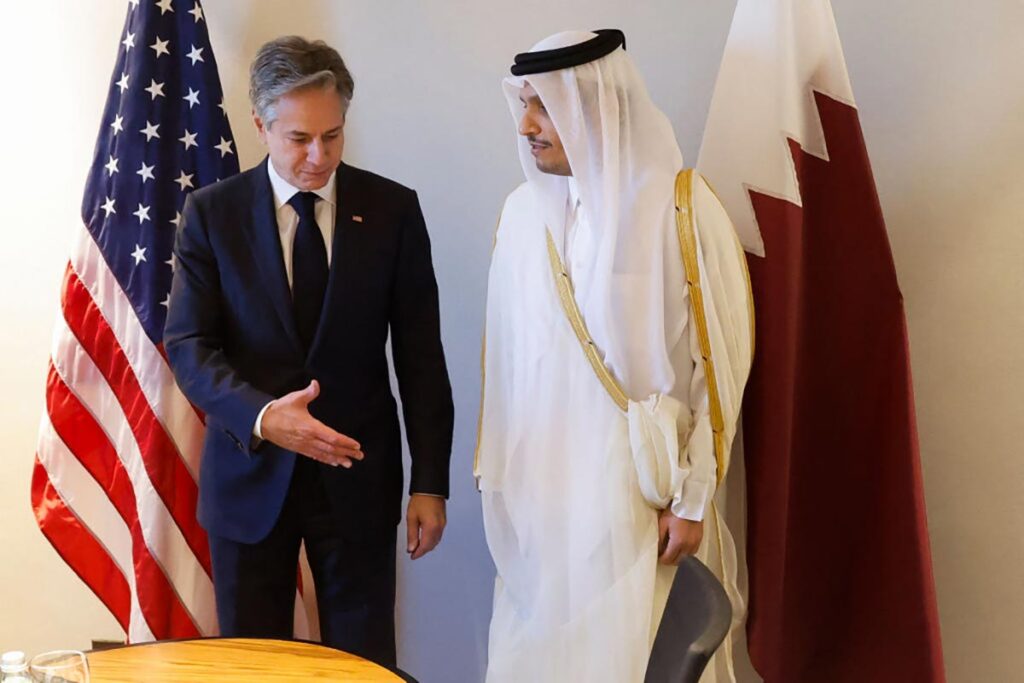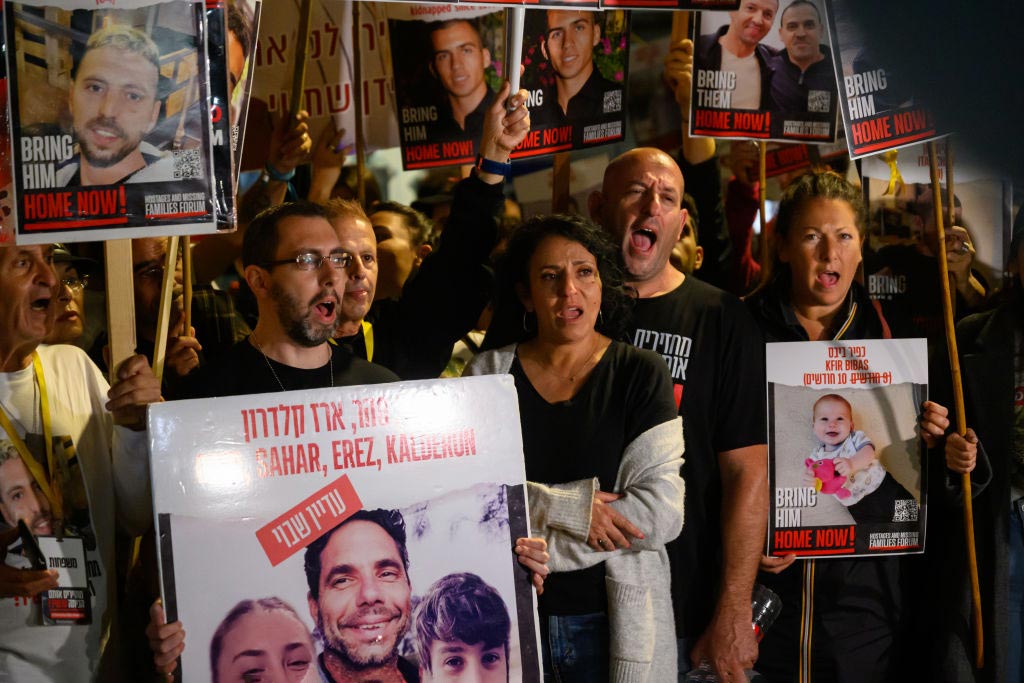
Negotiations aimed at another hostage deal — moderated by the U.S., Qatar, and Egypt — have continued in recent days, where dozens of Israeli hostages could be released in return for a variety of concessions.
On Sunday, American, Qatari, and Egyptian officials met with Israeli negotiators in Paris to discuss the details of such a plan. By the end of the negotiations, the officials agreed on a proposal, which was submitted to Hamas via Qatari diplomatic channels.
Are Israel and Hamas on the brink of a second hostage and ceasefire deal? What do Israel and Hamas want in such a deal? Here’s the latest in this developing story.
Where do the negotiations currently stand?

The negotiations are in a “much better place” than they have been in recent weeks, Qatari Prime Minister Mohammed bin Abdulrahman bin Jassim Al-Thani said.
Al-Thani said that Qatar had moved Hamas from a staunch position of requiring an immediate permanent ceasefire to considering a deal that could eventually lead to a permanent ceasefire.
However, the Qatari prime minister also downplayed his country’s ability to pressure Hamas into accepting a deal, saying on Monday, “We don’t see that Qatar is a superpower that can impose something.”
Instead, Qatar sees its role as maintaining its position as a mediator and bridging “the gaps” between proposals presented by both Israel and Hamas.
Although Qatar’s foreign ministry initially said that Hamas agreed to the framework of the proposed deal, the terror group subsequently denied doing so, saying, “we haven’t given response to any of parties, it is still being studied.”
What are the terms of the proposed hostage deal?

The proposed hostage deal involves a phased release of hostages and Palestinian prisoners along with a mutual ceasefire, similar to the deal brokered in November 2023, which resulted in the release of 105 hostages and 210 Palestinian prisoners.
In the first phase of the proposed plan, Hamas would release 35 Israeli hostages who are women, elderly men or individuals in critical medical condition.
In exchange, Israel would release 100-200 Palestinian prisoners, and both sides would agree to implement a 35-day ceasefire. The ceasefire could potentially be extended, depending on the progress of negotiations during the first phase.
The potential subsequent phases

The second and third phases of the proposed plan were not presented in detail and would instead be negotiated during the initial 35-day pause. However, reports attributed to senior Qatari and Israeli officials have outlined a rough framework for potential subsequent phases.
In the second phase, the ceasefire would be extended beyond the initial 35 days, and Hamas would free all of the remaining living hostages, including male soldiers. Israel would likely release additional Palestinian prisoners during subsequent phases as well — the exact number of which would be decided in future negotiations.
It is believed that Hamas and other terror groups in Gaza are still holding 132 of the 253 individuals kidnapped on Oct. 7. According to the IDF, 29 of the 132 have been confirmed dead.
Hamas is also believed to be holding the bodies of Oron Shaul and Hadar Goldin, IDF soldiers killed in a cross-border attack in 2014, and Avera Mengistu and Hisham al-Sayed, both of whom entered Gaza on their own accord in 2014 and 2015 and are believed to be alive.
The third and final phase of the deal would involve another ceasefire extension and prisoner release in return for bodies currently held by Hamas.
How likely is Hamas to accept the proposed deal?
There have been conflicting reports regarding Hamas’ position on this proposal and how likely they are to accept it.
An unnamed Israeli official told NBC News on Friday that the ball is now in Hamas’ court and that it is unclear whether a deal will be reached. “I don’t think it’s more than 50/50 it will materialize,” the official said.
On Tuesday, Hamas leader Ismail Haniyeh said that the group was weighing the plan. He is reportedly studying the proposal in Cairo this week, his first public trip to Egypt in over a month.
Since the collapse of the seven-day ceasefire and hostage deal in early December, Hamas has rejected any sort of compromise with Israel, saying it desires a complete Israeli withdrawal from Gaza and an end to the war.
Israel has emphasized that it will not withdraw its forces from Gaza unilaterally, with Prime Minister Benjamin Netanyahu repeatedly stating that troops will remain in the Strip until “total victory” is achieved.
What concessions would Israel be willing to make in exchange for the release of hostages?
While the Israeli public is anxious for a speedy return of all of the hostages remaining in Gaza, there is substantial disagreement among politicians and the public regarding the concessions Israel would have to make in order to secure such a deal.
In a video he posted on Wednesday, Netanyahu stressed that Israel has limits on the concessions it is prepared to offer for the release of the remaining hostages.
“We are committed to getting a hostage deal, but not at any price. I have red lines,” he said. “Among them are: we will not end the war, we will not remove the IDF from the Gaza Strip, and we will not release thousands of terrorists.”
Meanwhile, Israeli ministers and Knesset members are divided on the issue. Otzma Yehudit leader and National Security Minister Itamar Ben-Gvir threatened to collapse the fragile coalition government this week if the prime minister accepts what he considers to be a “reckless” deal, without specifying what a “reckless” deal would entail.
On the other hand, National Unity MK Chili Tropper said his party would leave the emergency government if Netanyahu rejected an “acceptable” deal. However, Tropper was clear that his center-left party also had its limits, saying that it is willing “to pay a heavy price, but stopping the war is a price Israel is unwilling to pay.”
Complicating the matter, “U.S. negotiators are pushing for a cease-fire deal that could stop the war in Gaza long enough to stall Israel’s military momentum and potentially set the stage for a more lasting truce,” the Wall Street Journal reported.
Israeli officials, however, have adamantly rejected proposals requiring a formal withdrawal from Gaza and a cessation of the war before its objectives are achieved.
What will happen next?
U.S. National Security Council spokesperson John Kirby said that “nobody is doing a touchdown dance yet,” but the administration is hopeful about the prospects of reaching a deal that includes a ceasefire, hostage release, and the delivery of humanitarian aid to Gaza.
“There is still diplomacy ahead of us, a lot of discussions to occur before we can get there,” Kirby added.
Qatari Prime Minister Al-Thani said that while there has been progress in the negotiations, the timeline for reaching a deal remains uncertain. “Sometimes the negotiations can surprise us and can finish in days, but some other times we get stuck into details,” he explained.
Originally Published Feb 2, 2024 01:10PM EST
